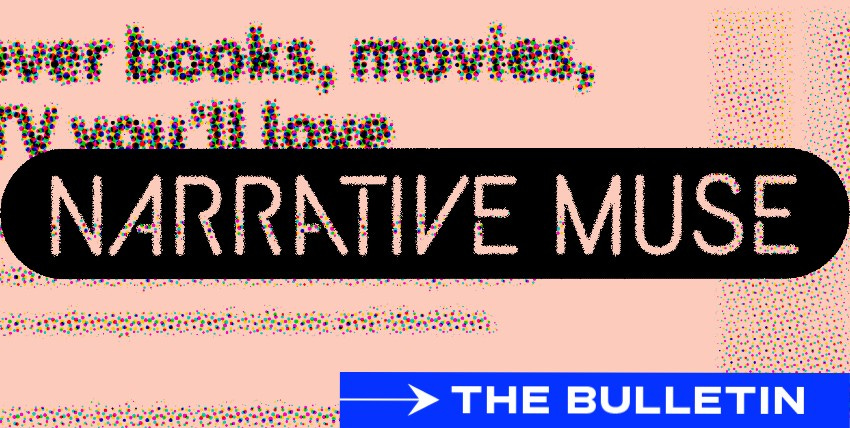The half-a-million-dollar decision that still haunts the book industry
Plus: 'Nangs' banned and Tory Whanau says she was taken out of context over sold car.
Mōrena, and welcome to The Bulletin for Monday, September 23.
In today’s edition: The sale of nitrous oxide for recreational reasons now carries heavy penalties, four year parliamentary term could be on the agenda come 2026, and will the Greens finally choose to “party hop” Darleen Tana?
But first: The Spinoff’s books editor Claire Mabey brings you the story of Narrative Muse in this week’s must read Cover Story.
The story of Narrative Muse
On The Spinoff this morning, the latest in our Cover Story series comes from books editor Claire Mabey. It’s a fascinating, in-depth look at a subject that you may not be aware of but, as her report makes clear, has far-reaching impacts.
I asked Claire what compelled her to write about a relatively niche and knotty funding decision in such depth.
The manatū taonga Ministry of Culture and Heritage decision to give half a million dollars to Narrative Muse back in 2021 had a huge impact on the books industry in New Zealand. I wanted to find out what had happened since that decision, from all angles: the industry, MCH and Narrative Muse. What I discovered was a story of deep dissatisfaction and a profound clash of culture at the heart of it.
I’ll hand you over to Claire from here. I suggest you set aside a few minutes to read Claire’s piece in full (find it here). Your regular news updates are below.
It’s 2021 and the Covid-19 pandemic has ruptured systems everywhere. The New Zealand government is working, at an unprecedented scale and pace, to hose out money to prevent economic and industrial collapse.
As revenue from live events and commercial streams plummets, the arts sector needs funds, and fast. The sector is used to applying for funds from Creative New Zealand: they know its people, its processes, its values. But it’s the Ministry of Culture and Heritage Manatū Taonga that will administer most of the Covid recovery money. MCH receives an initial $150 million dollars, of an eventual $374 million, to disseminate via a series of contestable funds. It creates, at great expense, a new funding platform to process applications and administer funds, and recruits shoals of staff, many of whom will be working in funding administration and alongside the arts sector for the first time.
One of the contestable funds — the Innovation Fund — is designed “to support innovative projects that: improve the sustainability and resilience of the sector; provide commercial opportunities; improve access and participation.”
There is urgency among arts organisations — including a strained books sector trying to maintain core operations while adapting systems to a new contactless reality and author events are wiped from the calendar — to adapt to the MCH processes and access what is described as a once-in-a-generation injection of resource. If successful, the level of investment would be transformational, particularly for organisations used to much smaller pools of money granted only when there’s a clear track record of success.
Enter Narrative Muse. The results of successful Innovation Fund recipients are posted and the arts sector learns that a little-known tech startup has been awarded the astounding amount of half a million dollars — enough to publish 50 books as a ballpark equivalent — “to help New Zealand content producers of books, movies and TV increase sales of content”.
The response from within the books sector in particular was swift. Newsroom reported that members of the industry were “aghast”, that the decision was “a shocking undermining of the New Zealand books sector which works so hard to support authors and publishers.” The various responses essentially boiled down to: What the hell is Narrative Muse? And, They better have something excellent up their sleeve to justify all that money.
This is the story of all that’s happened since.
Join The Spinoff Members
"Happy to be alive, proud to be a member. Keep up the good work." - Neera, Spinoff member.
If you value our work and want to support us, please consider becoming a member today. Already a member? Thank you!
‘Poverty is a political choice’
On the front page of the Herald this morning, Newstalk ZB political editor Jason Walls reports on the $3bn price tag required to meet the former government’s child poverty reduction targets. That figure came from officials, who advised the current government that the former target of reducing the number of children experiencing “material hardship” from 13.3% down to 6% by mid-2028 was “no longer realistically achievable”.
With progress not on track, the estimated investment needed to meet Labour’s targets would be about $3bn a year. Child poverty reduction minister Louise Upston said she wouldn’t be spending that, and believed growing the economy was a better way to lift children out of hardship.
But the Greens’ Ricardo Menéndez March said it showed that poverty was a “political choice” and pointed to the $2.9bn price tag for reinstating interest deductions on residential properties. “We can afford to end poverty, but we simply cannot afford to allow more and more children to fall through the cracks,” he said.
Rule change sees ‘nangs’ outlawed
The sale of nitrous oxide – or “nangs” – for recreational use could carry heavy fines or prison sentences, the government has announced. Health minister Shane Reti confirmed yesterday that, after seeking official advice, police will now be able to prosecute sellers of nitrous oxide for recreational use. For those who might not be aware of nangs or how easy they can be to obtain, this 2021 report by Re:News is a useful starting point.
Until this point, the sale of nitrous oxide for inhalation fell under the Medicines Act which carried with it a high bar for prosecution. Medsafe has since updated its advice to say when nitrous oxide was used primarily to get high, it was considered a psychoactive substance. Reti said he was especially concerned after reports of vape stores selling nangs.
Previously, reported the Waikato Times in July, neither Reti nor associate health minister David Seymour had been willing to step in to change the rules around nang use, saying they didn’t have responsibility on a retail sale ban. In June, RNZ reported on a woman who had urged the government to regulate sale of the drug after an overdose led to her losing the movement of her legs.
Listen: A brand new episode of Behind the Story
This is a good listen, though I am a bit biased… It was lovely to join The Spinoff’s editor Madeleine Chapman for a chat on the latest episode of Behind the Story.
We talk about my various roles at The Spinoff, what goes into writing an edition of The Bulletin, and why I like following those random, one-off tips that every journalist gets.
Listen below or wherever you find your podcasts.
Click and Collect
The Greens now have a clear path ahead to “party hop” Darleen Tana out of parliament. What happens next?
Prime minister Christopher Luxon has made his view on a four-year parliamentary term abundantly clear, suggesting we could be voting on whether to introduce it at the 2026 election. Back in 2020, wrote Alex Braae for The Bulletin at the time, both Labour and National’s then-leaders threw their support behind extending the term.
More on the Regulation Ministry from The Post’s Andrea Vance, who has reported the agency picked up a $30 million budget boost in May as other ministries were forced to make cuts.
The Spinoff’s Joel MacManus argues that Wellington mayor Tory Whanau has “terrible political instincts” after an interview in which she appeared to say she had sold her car to pay the bills in an effort to appear relatable (on Q+A yesterday, she said she was taken out of context).
Also on Q+A: a really interesting look at the future of our end of life choice legislation and whether it could be extended.
Safe release of Kiwi pilot Phillip Mehrtens was far from guaranteed.
For Newsroom Pro subscribers (paywalled), a good look at what the exit of Newshub has done for online media (spoiler: RNZ is picking up a lot of the audience).
Joel MacManus asks what we know about Tara, who founded the first permanent human settlement in Wellington. Local eateries using AI images may be at risk of duping their customers, but a lack of legislation means they’re not breaking the law, reports Lyric Waiwiri-Smith. Alex Casey visits the largest gemstone collection in the country, and meets the 85-year-old owner trying to Marie Kondo the lot. For her weekly weekend column, Madeleine Chapman looks at Christopher Luxon’s “big frick energy”. Comedian Guy Montgomery takes us through his life in television. Luke Wilson ranks almost all of the Hobbits in the Tolkienverse from worst to best. Waiata Anthems singers Mohi and Chase Woods share their perfect weekend playlist.
That’s it for this morning, thanks for reading. I’ll catch you back tomorrow.
Want to get in touch? Join the conversation in the Substack comments section or via email at thebulletin@thespinoff.co.nz if you have any feedback on today’s top stories (or anything else in the news).
If you liked what you read today, share The Bulletin with friends, family and colleagues.
















Is there much difference between eateries using AI images and those photo fabrications the national fast-food chains use on their web/store menus to mis-represent what they actually deliver?